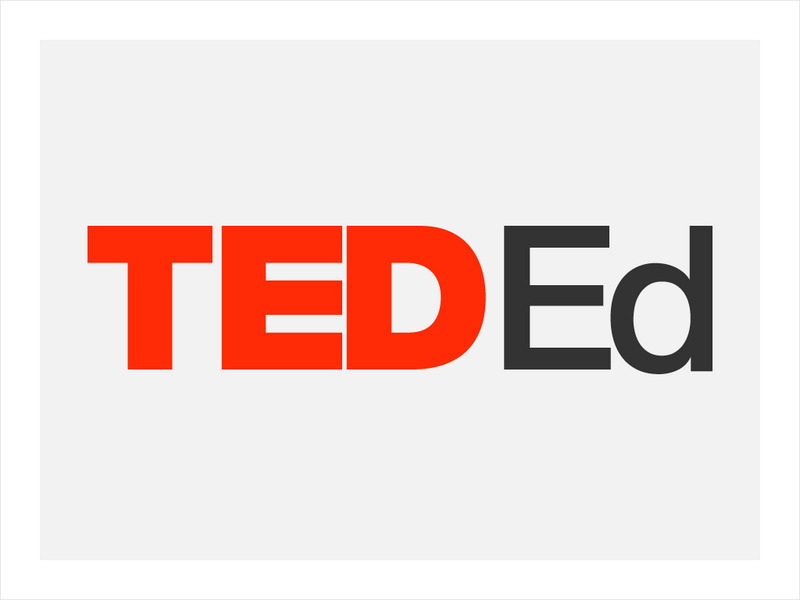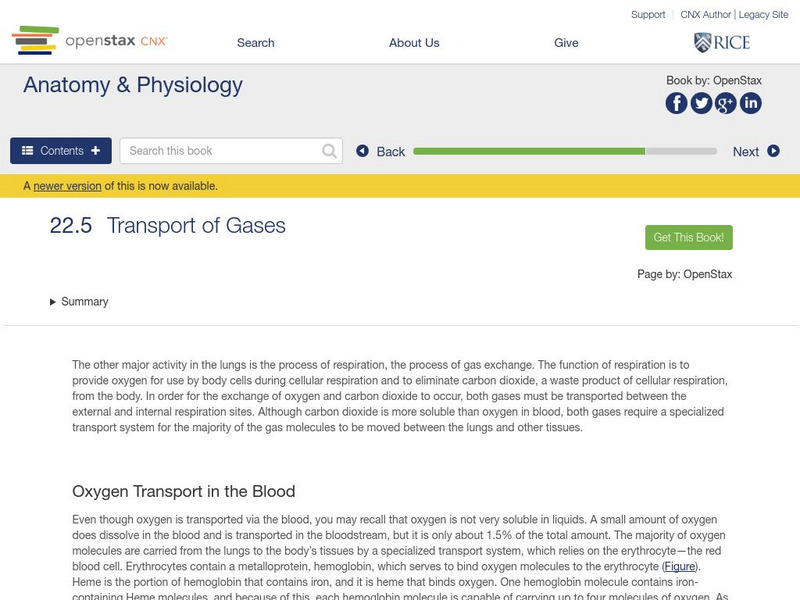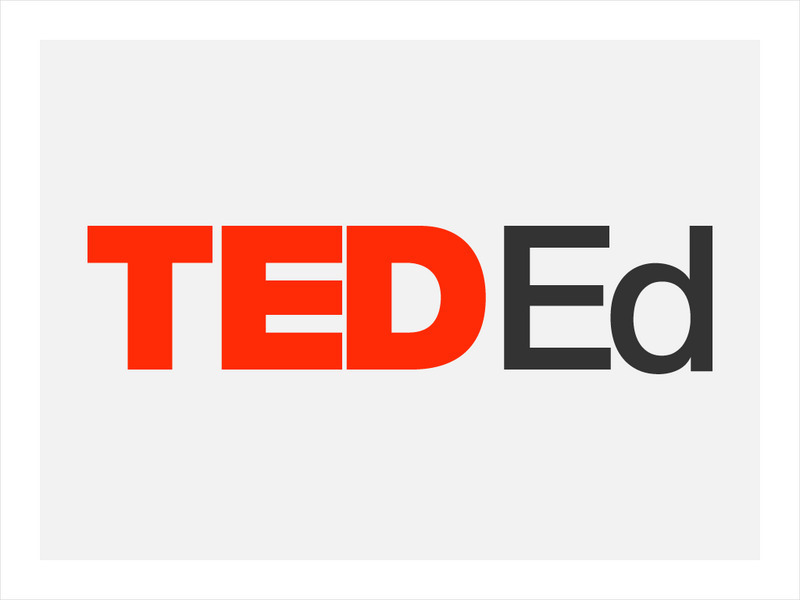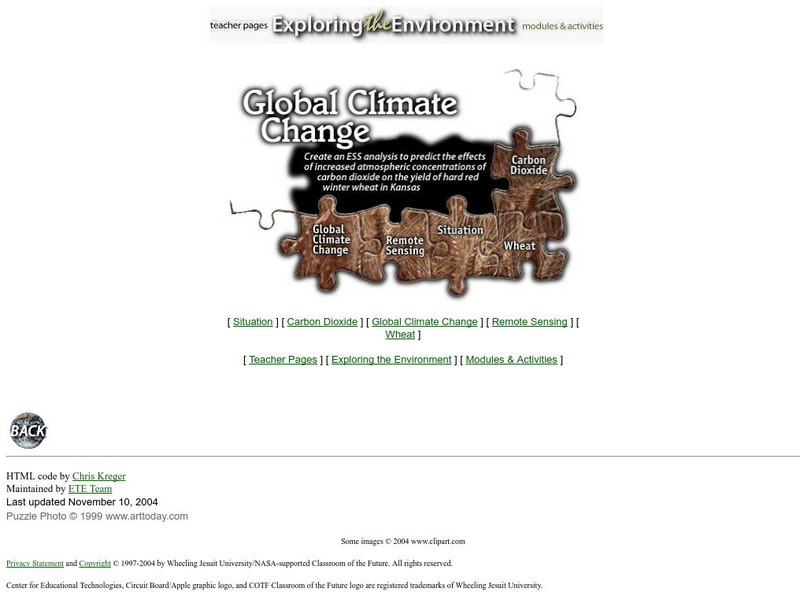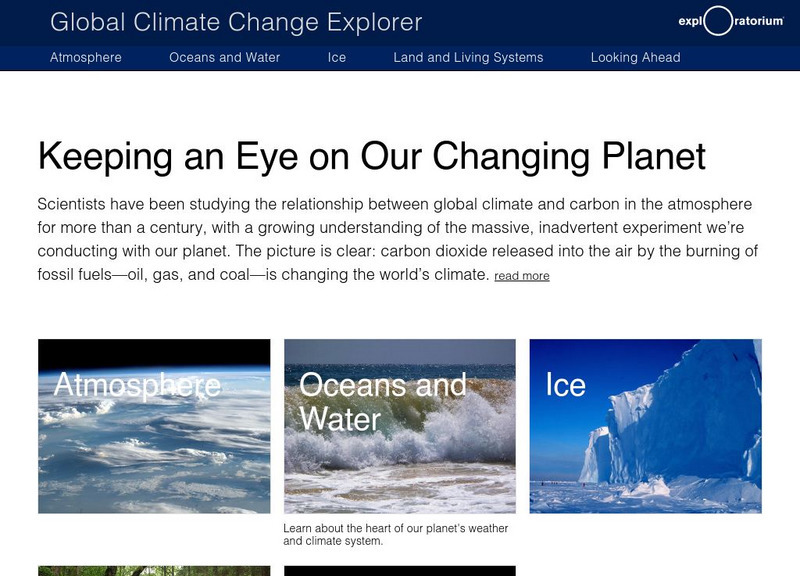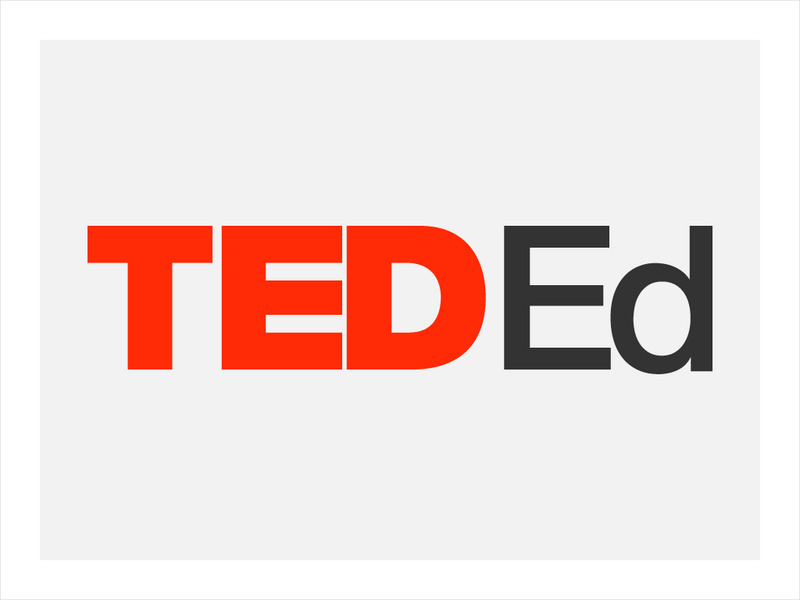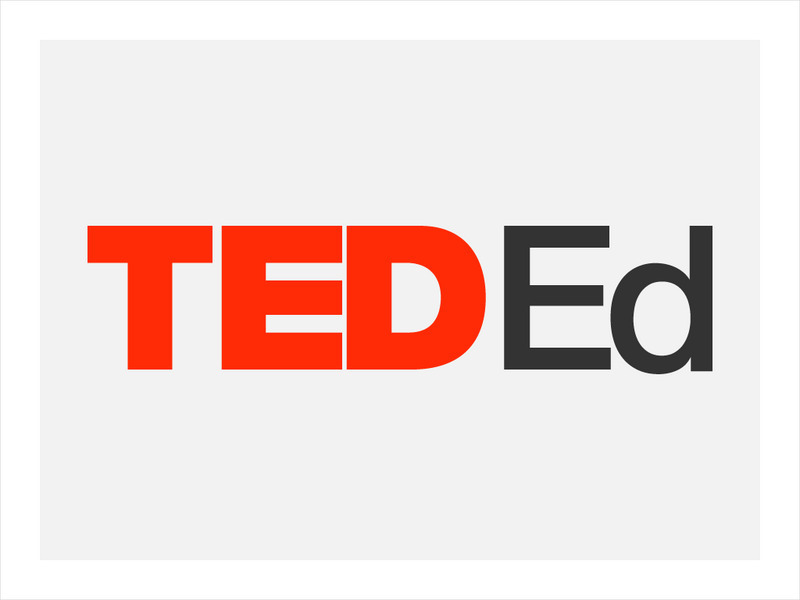Hi, what do you want to do?
Curated OER
Gas Exchange And Respiratory Systems.
Explore structures within the realm of gas exchange in terrestrial and aquatic life. The excellent, labelled diagrams and clear descriptions help your students view the different structures and adaptations that have...
Curated OER
Climate Change: Carbon Cycle
Students explore the carbon cycle. In this carbon cycle instructional activity, students discuss the four main reservoirs where carbon is stored and then discover the process through which each reservoir absorbs and releases CO2. This...
Curated OER
Global Climate Change: The Effects of Global Warming
Students study the concepts of global warming and climate change as they relate to the levels of carbon dioxide in the atmosphere. They examine the changes in glacial ice in relation to global warming. They decide how human activities,...
Curated OER
The Breathtaking Nature of the Urban Explosion, Part 4
Students explore the respiratory system. They use a computer to monitor the respiratory rate of an individual. They determine residual oxygen levels in exhaled air. Students evaluate how internal 02 and C02 concentrations influence...
Georgia Department of Education
Ga Virtual Learning: Air, Atmosphere, and Climate Change
Sixteen essential questions lead student learning about Earth's atmosphere and global warming as they have to do with global climate change.
TED Talks
Ted: Ted Ed: How Breathing Works
This video describes how the process of breathing in the human body works. [5:19] Includes a brief quiz and a list of additional resources to explore.
Science Education Resource Center at Carleton College
Serc: Density With Carbon Dioxide
A guided demonstration where students investigate the properties of carbon dioxide gas and air based on density. Students learn about properties of air through observation and inquiry.
Science Education Resource Center at Carleton College
Serc: Connecting Global Climate Change With Engineering
A short series of lessons that explore the importance of engineering solutions to the management of climate change, by brainstorming ways to remove CO2 from the atmosphere and store it in a form that does not promote global warming.
OpenStax
Open Stax: Anatomy & Physiology: Transport of Gases
Students learn the principles of oxygen and carbon dioxide transport within the human body, and understand the structure of hemoglobin.
Chem4kids
Chem4 Kids: Carbon
Click on the left navigation terms for some great information about the 6th element in the periodic table, "carbon." Content focuses on carbon's electrons, where you can find carbon in nature and in the home, and how carbon combines with...
PBS
Kqed: What Are Greenhouse Gases and Where Do They Come From?
Use this interactive infographic to learn about sources of the main greenhouse gases. Read facts, figures, and statistics about four important gases in the atmosphere.
Climate Literacy
Clean: Climate Change and the Oceans
Students discover the role that the oceans play in climate change, and how climate change affects the oceans. It is lesson eight in a nine-lesson module "Visualizing and Understanding the Science of Climate Change."
Virginia Tech
Virginia Polytechnic Institute: Greenhouse Dinosaur Extinction Theory
This comprehensive page discusses the Asteroid Impact vs. Volcano-Greenhouse dinosaur extinction debate. It was written by paleontologist, professor, and scientist Dr. Dewey McLean.
TED Talks
Ted: Ted Ed: The Carbon Cycle
Video talks about the carbon cycle and uses a computer as a metaphor to show how the cycle can be disrupted by climate change. [3:55] Includes a short quiz and a list of additional resources to explore.
Center for Educational Technologies
Exploring the Environment: Global Climate Change
This tutorial looks at carbon dioxide in the atmosphere and how changes can impact wheat production in Kansas.
NASA
Nasa: Why Is Carbon Important?
Learners explore the relationship between atmospheric carbon dioxide concentrations and temperature, and how these relate to climate change. Graph and map data are used as evidence to support the scientific claims they develop through...
Climate Literacy
Clean: Climate Feedback Loops
This is the seventh of nine lessons from a student learning module called "Visualizing and Understanding the Science of Climate Change." This lesson addresses climate feedback loops and how these loops help drive and regulate Earth's...
Other
Primer on Climate Change and Human Health [Pdf]
A comprehensive guide to climate change in Canada. This site offers both a national look and then looks at the implications of climate change on specific regions and provinces.
Exploratorium
Exploratorium: Global Climate Change: Research Explorer
Explore scientific data relating to the atmosphere, oceans, areas covered by ice, and living organisms in all these domains. Interpret past and present climate data to predict future climate change and its possible effects.
Texas Instruments
Texas Instruments: Jason: Tropical Forests Cleaning the Air?
Rainforests at the Crossroads: Measure the CO2 level in a bottle that contains spinach leaves when it is exposed to light. Then collect CO2 data and observe the effects of photosynthesis as you add leaves in the bottle.
Society for Science and the Public
Science News for Students: Carbon Dioxide Levels Rise Fast and High
The buildup of carbon dioxide in the atmosphere is rising faster than at any time since dinosaurs roamed the Earth. The burning of fossil fuels is largely to blame.
TED Talks
Ted: Ted Ed: How Quantum Mechanics Explains Global Warming
You've probably heard that carbon dioxide is warming the Earth. But how exactly is it doing it? Lieven Scheire uses a rainbow, a light bulb and a bit of quantum physics to describe the science behind global warming. [5:01]
TED Talks
Ted: Ted Ed: Climate Change: Earth's Giant Game of Tetris
There's a game of Tetris happening on a global scale: The playing space is planet Earth, and all those pesky, stacking blocks represent carbon dioxide- a greenhouse gas that is piling up ever more rapidly as we burn the fossil fuels that...
TED Talks
Ted: Ted Ed: Is Our Climate Headed for a Mathematical Tipping Point?
Scientists have warned that as CO2 levels in the atmosphere rise an increase in Earth's temperature by even two degrees could lead to catastrophic effects across the world. But how can such a tiny, measurable change in one factor lead to...










